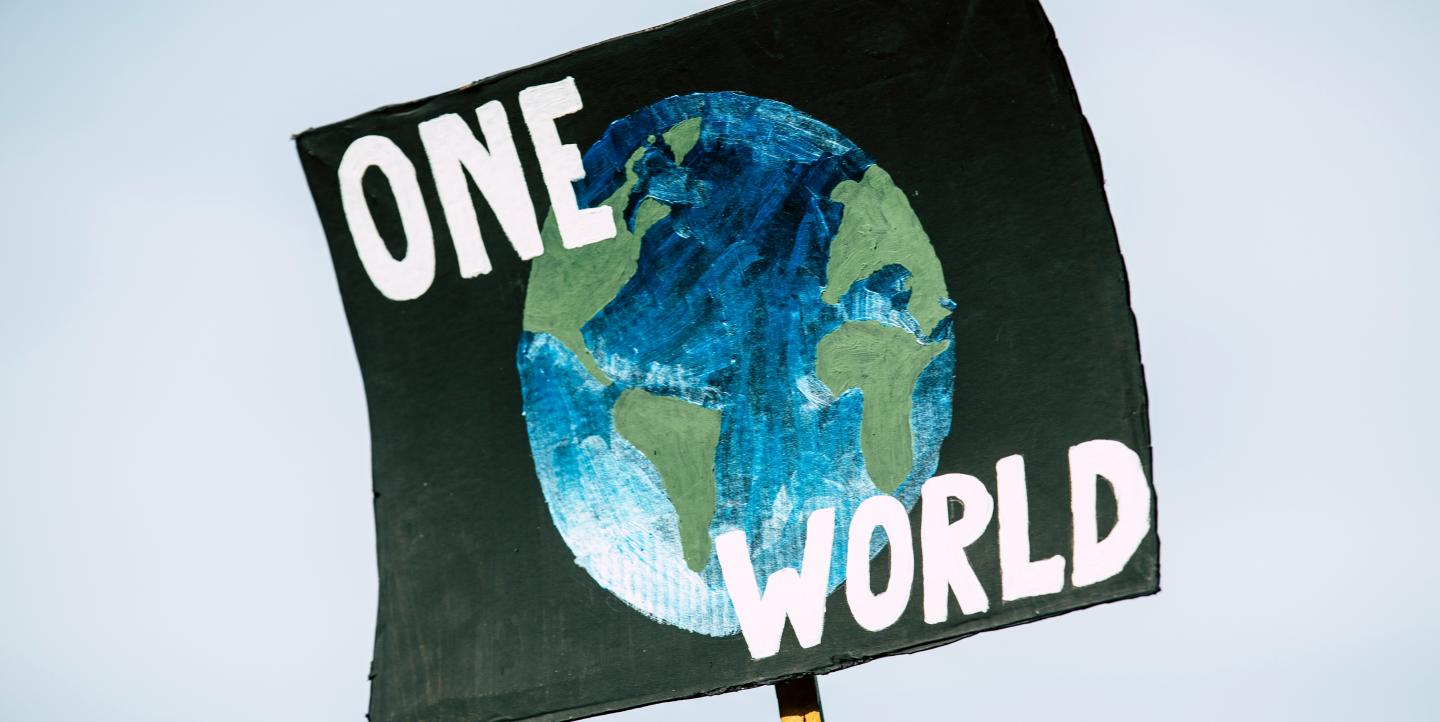Today, Ghana is vulnerable to rising sea levels, droughts, rising temperatures, and erratic rainfall patterns.
Extreme weather events and high temperatures are already impacting the country’s economy, human health and security, and more. Environmental changes have the ability to adversely impact Ghanaian infrastructure, hydropower production, food security, coastal livelihoods, and the agricultural sector, which plays an important role in Ghana’s economy, employing about 45% of the labor force.
Meanwhile, climate-related mis- and disinformation is slowing down efforts to tackle these environmental consequences.
“Climate disinformation affects the country, as journalists sometimes fail to connect climate change issues to everyday events like poor air quality and extreme heat,” said Nathan Gadugah, an editor for Dubawa Ghana.
The spread of such false information, and climate skepticism in general, will only increase if journalists and fact checkers don’t dedicate more focus to environmental issues, added Albert Ansah, a science and environment journalist at the Ghana News Agency.
How Ghana’s climate change policies fall short
Despite these issues, climate change has rarely been a major issue in Ghanaian politics or elections, explained Gadugah.
“In 2013, the National Climate Change Policy was announced but there has been little or no attempt to publicize its activities and policies,” he said. “Even though some policies have recently been introduced, including the emissions tax, the opinions of many Ghanaians are tilted more to a strategy by the government to raise money to boost the economy rather than fight climate change.”
The policies addressing climate change that do exist are uncoordinated and fail to involve the public, Gadugah added.
Ansah concurred: “The disturbing trend is that some, like the politicians who occupy influential positions, are not ready to make decisions that will support the country's adaptation and mitigation plan of the Paris Agreement.”
Climate change denial in Ghana
Environmental issues have also been politicized, which has helped undermine efforts to address and mitigate the impacts of climate change.
In 2021, Alexander Afenyo-Markin, the deputy majority leader in Ghana’s Parliament, stirred controversy by sharing a photo allegedly depicting sand mining activities – the illegal practice of gathering sand and other materials from the earth for construction, such as gravel, dunes, and beaches – in the coastal town of Keta in the Volta Region of Ghana, to explain the cause of tidal waves there that displaced nearly 4,000 people.
This led to a heated debate in which a parliament member, Nelson-Rockson Dafeamekpor, rejected these claims. It was later revealed that the image was false and originated from Freetown, Sierra Leone. “The photo from Sierra Leone used to present the impact of the tidal waves in Keta somehow downplayed the consequences of the climate change situation in that region,” said Kwaku Krobea Asante, a fact checker and communication lead at the Media Foundation for West Africa.
On social media, too, users have regularly described climate change in Ghana as a hoax, downplaying the crisis in the country.
Where fact-checkers can start
In general, fact-checking organizations in Ghana should focus more on climate change disinformation and its negative impact on citizens and communities, said Gadugah, adding that their work also requires more financial support.
“Fact-checking organizations lack focus on climate change disinformation due to limited interest. [There is also] the absence of a clear agenda from climate skeptics, he explained. “An investigation into this will require a lot of funding which fact-checkers in Ghana do not have.”
One important place fact-checkers can start, suggested Gadugah, is the oil industry. “Fact-checkers should be interested in oil companies because of the economic dynamics of the fossil fuel industry and its exploration activities, which significantly contribute to carbon dioxide emissions,” he said. “Actors in that space will implicitly push more for this status quo for their businesses to thrive which will be to the detriment of the climate.”
Debunking disinformation around the climate crisis, he continued, should take into account not just explicit statements denying that environmental change is happening. It should highlight instances of cherry-picked data, topic avoidance, and attempts to downplay its urgency.
“Climate change disinformation is primarily seen through omission and selective information rather than outright denial,” Gadugah noted.
Photo by Markus Spiske on Unsplash.


